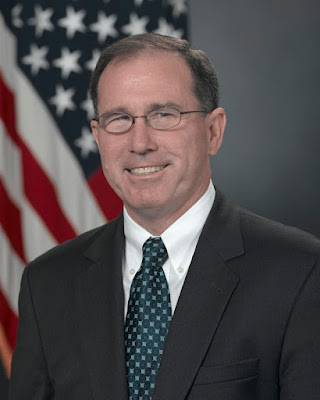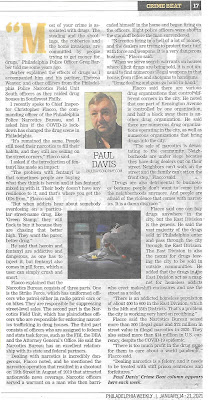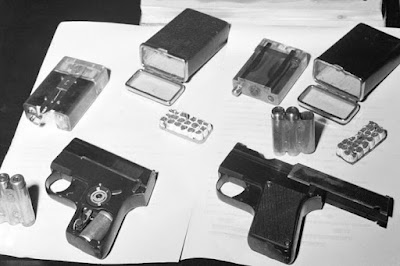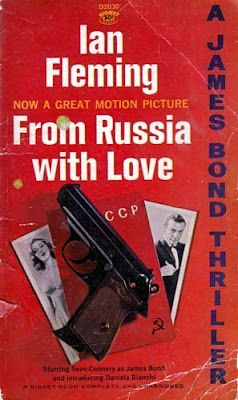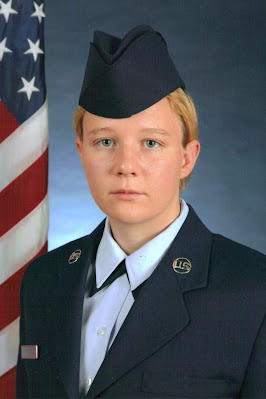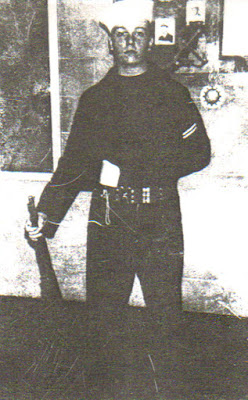The story below about
Navy Boot Camp is chapter seven in my crime thriller Olongapo,
which I hope to soon publish.
Boots On the Ground
By Paul Davis
Prior
to going on watch in the USS Kitty Hawk’s message processing center as we were
operating on "Yankee Station" in the South China Sea off the coast of
North Vietnam in 1971, I was standing in line in the galley waiting for chow to
begin being served.
Standing
in line with me was Willie Henry, a bulky 25-year-old black sailor from Houston
who worked with me in the aircraft carrier’s Communications Radio Division.
Henry was wondering what was going to be served.
“If
I can’t put it between two pieces of bread, I ain’t eating it,” Henry
explained.
“I
guess soup is out,” I said.
In
the past, I’d seen him place a large piece of meatloaf between two pieces of
sliced white bread, and another time I saw him slap a thick steak between
slices of white bread. I even once saw him place a mound of mashed potatoes
between slices of white bread and squash it down.
“Gangway!
Prisoners!”
We
moved aside when we heard the Marines yell as they marched the dozen or so brig
prisoners past us to the head of the chow line.
“That’s
Lupre,” I said, pointing towards the brig prisoners.
I
recognized the tall and lanky black sailor, his head shaved, marching in close
order with the other brig prisoners, toe-to-heel and crotch-to-ass.
“You
know Louie Lupre?”
“Yeah.
He was my friend in Boot Camp.”
Henry
told me that he met Lupre in Olongapo. Henry said that this was Lupre’s second
time in the brig. Lupre, usually a low-key guy, was working as a mess cook when
he assaulted a petty officer who threw a mop at him and ordered him to swab the
deck. Lupre hit the petty officer with the mop.
Henry
said that Lupre had previously punched out a petty officer who was stupid
enough to raise his voice to him. Henry also told me a story of Lupre in the
“Jungle” section of Olongapo, where black sailors preferred to hang out away
from the white sailors.
“Two
brothers were razzing Lupre about being a dumb, country-ass fool,” Henry said.
“Lupre didn’t say anything back. He just punched them both out. One, then the
other. That crazy brother hits hard.”
I
liked Lupre and I felt bad for him. As I stood in the chow line, I thought of
our time together in Boot Camp.
The
road to Olongapo for me began on a platform at the North Philadelphia train
station on February 9th in 1970 when I was 17 years old. My mother and father
were with me as we waited for the train to take me to Chicago and then on to
the Naval Recruit Training Center at Great Lakes, Illinois.
Salvatore
Lorino was also there, standing alone a few feet from me. I recognized him from
our South Philly neighborhood, and I was surprised to see him there. I nodded
to him, and he nodded back.
We
later spoke on the train as we barreled towards Chicago. Sitting in the diner
car, I looked at the menu, thinking I was worldly and cool like actor Sean
Connery as James Bond on the Orient Express train in the film From
Russia With Love. The waiter disabused me quickly of this notion, as
he told us that as Navy recruits, our meals were planned and prepaid.
Lorino
told me over dinner that a judge ordered him to join the military or go to
prison, so he decided to enlist in the Navy. He wondered if he had made the
right choice.
I told
Lorino that I needed to use the restroom, and I went off in search of one. The
train was rocking hard from side to side as it sped on, and I tried with some
difficulty to keep my feet firmly on the restroom’s floor and keep my stream of
urine directed at the center of the toilet as I swayed uncontrollably from the
train’s motion. I recall hoping that my aim would be better on the Navy’s rifle
range.
When
we reached Chicago, all of the recruits transferred to a bus that took us to
the Navy base, arriving late in the evening. It was bitter, bone-chilling cold,
as we stepped off of the bus. As we emerged from the bus, we were greeted by a
screaming wild man. The wild man yelled out that he was Gunner’s Mate 1st Class
Petty Officer Calhoun, our company commander. Calhoun had a pronounced rural
Southern accent, and he cursed us as he herded us into the barracks like we
were cattle.
The barracks,
built in WWII, was decrepit and dreary. And very cold. The two-tier bunks,
called racks, appeared to be even older than the barracks.
Calhoun was a
muscular 6-footer with close-cropped blonde hair. He berated us and hurled
insults ranging from “fucking pussies” to “candy-ass pukes.”
Navy recruit
basic training was informally called “Boot Camp” and recruits were called
“Boots.” We were in the U.S. Navy, but for the next three months we would not
go aboard a ship or go to sea. First, we Boots had to be trained as sailors and
military men ashore at Boot Camp. We were, in a sense, Boots on the ground.
Once in the
barracks, Calhoun informed us that in the U.S. Navy’s order of things, Boots
like us were less than human and we would be treated accordingly. Calhoun had
us line up in front of our assigned racks. He informed us that we were in a
temporary barracks and in one week’s time we would be “crossing the river” to
our new barracks.
The following
day we were issued uniforms and had our heads shaved. We spent that first week
at Boot Camp marching, running, doing calisthenics and extreme exercises with a
12-pound M-1 rifle. As punishment for infractions, the recruit offender had to
extend his arms outward and hold the rifle horizontally at shoulder’s length.
Sounds easy? Try
it for a half-hour, as I did on several occasions.
I hated the
company commander, as we all did, even though as the son of a former Navy
chief, and a voracious reader about the Navy and the military, I knew that
these extreme basic training conditions were meant to instill military
discipline and teamwork. Still, I thought the company commander went way
overboard, and he appeared to truly enjoy torturing the recruits.
That first week
in Boot Camp we had to memorize the 11 General Orders of a Sentry, and we had
to recite them to any drill instructor who happened to visit us while on watch.
We stood security watches across from the company commander’s office, at the
head of the passageway between the rows of bunks in the barracks. While on
watch, we stood at parade rest, our right hand on our M-1 rifle as it leaned
forward at our side, and the left hand placed behind our back, with our legs
spread apart.
While standing
watch one early morning as the recruits were asleep, Calhoun snuck up on me. He
looked me up and down, shook his head in disapproval, and called me a candy-ass
and a puke excuse for a sailor. I stood rigid and said nothing, but I had a fine
thought about punching this old man's lights out if I ever encountered him
outside the base.
Calhoun placed
his ugly, twisted face nearly up against mine and screamed, “What is the 5th Order
of a Sentry?”
"To quit my
post only when properly relieved, Sir!"
Calhoun looked
disappointed that I knew the response. He walked into his office without
another word.
Over the course
of the first week, I saw many other recruits draw a mental blank through
nervousness, and some broke down and stammered, and some even cried when
Calhoun screamed, cursed, waved his hands about, and stomped his feet in an
effort to confuse the sentry.
Having been raised by a former Navy chief
who ran our house like a ship, I felt like I grew up in the Navy. So this was
not new or especially intimidating to me.
"Did
you eat shit for breakfast?” I recall Calhoun asking one recruit.
“No,
Sir,” the recruit replied.
“Then
why you got a shit-eating grin on your fucking face?”
Calhoun
didn’t take particular notice of Lorino and I, thankfully, but
he tormented Louis Lupre, a tall, gangling and soft-spoken 20-year-old
black recruit from Louisiana.
Calhoun
seemed to always find fault with Lupre, from the way he made his rack, to
the way the tall recruit stood at attention. At least twice a day, Calhoun
would be on Lupre, mocking his name and his looks, and criticizing the
recruit’s actions. Lupre took it all in stride, and this appeared to infuriate
Calhoun.
“You got
kerosine rags around your ankles, Lemonade?” Calhoun asked Lupre while we were
all at attention for an impromptu inspection by the crazy company commander.
“Sir,
what?”
“You got
kerosene rags around your ankles to stop them ants from crawling up your leg to
eat your candy ass.”
Lupre frowned
and shook his head, “No, Sir.”
“You eyeballing
me, boy?” Calhoun said as Lemon stood at attention.
“Don’t’
call me boy,” Lupre said in a low voice.
“Don’t
call me boy - Sir!” Calhoun yelled back. “I ain’t calling you boy because you
is colored. I’m calling you boy because you is a
boy – a young boy Boot!”
I was one
of many, if not all, who silently urged Lupre to strike Calhoun.
Thankfully for
Lupre, he did not.
At the end
of that long first week, Calhoun told us to go to afternoon chow.
“I don’t care if
you just drink a glass of chocolate milk, I want you back here in fifteen
minutes at 1300,” he screamed, his face red and distorted, saliva spitting out
from his rubbery libs. “I want to see you in full uniform at parade rest with
your sea bag in front of your rack ready to march across the river.”
We quickly
gobbled some food and then rushed back to the barracks. “Full uniform” meant a
Navy-blue wool watch cap, a Navy-blue wool turtleneck sweater under our
chambray shirt, bell bottom dungaree pants, “BoonDocker” boots, and a heavy,
double-breasted Navy-blue peacoat. After about a moment or two of standing at
parade rest, our arms folded behind our backs, legs apart, we discovered that
the insane company commander had raised the heat up in the barracks.
The
barracks was like the proverbial oven and with our layered clothes, the sweat
poured off of us. The barracks had a wall clock and out of the corner of our
eyes we watched time tick on slowly as we remained at parade rest. No one
moved, as we were terrified that Calhoun would sneak in and catch us off
guard.
It was not
until 1400 that a grinning and prancing Calhoun swept into the barracks. He
appeared to enjoy seeing our discomfort.
"I
got some bad news for some of y’all,” Calhoun announced to the sweat-soaked and
weary recruits. “We are splitting the company up. Some you pussies will not
have the pleasure of serving in my company.”
He explained
that those he called out would be transferred to another company under another
company commander.
“When you hear
your name, fall out.”
After the fourth
name was called, I heard him say “Davis, Paul.”
“Thank fucking
God," I said aloud without thinking.
Calhoun was on
me in a flash. His twisted face, which no doubt housed a twisted mind, came
within an inch of my own.
“You don’t like
me, do you boy?”
“No, Sir. I
don’t” I replied.
“Well, at least
you’re fucking honest. Move out!”
Lorino remained
in Calhoun’s company as I joined Lupre and the other recruits outside of the
barracks. We met our new company commander, a stout Boatswain’s Mate 1st Class
Petty Officer with thick glasses named Schmidt. He was no sweetheart, to be
sure, but he was certainly less manic than Calhoun.
The new company
commander lined us up and marched us across the mythical “river’ that separated
the old base from the new. “Across the river” was often mentioned that first
week and we were all taken aback to discover a body of water more accurately
described as a small creek than a river. And the bridge across the shallow
water looked like the kind of “bridge” one would see at a miniature golf
course.
Thankfully, the
new barracks we moved into was recently constructed and we felt much more
comfortable. Lupre’s rack was across from my rack in the barracks, and we
became friends. Lupre told me that he was glad he was no longer in Calhoun’s
company.
“At some point,
I would have punched that cracker and ended up in the brig.”
Lupre told me
that I was his first white friend. He said that in the rural Louisiana area
where he was born and raised, he had seen the occasional white man, but as his
neighbors and his schoolmates were all black, he had no real contact with white
people. Lupre, who didn’t say much, told me he got a kick out of my stories and
old jokes.
One humorous
story I told Lupre, and a couple of other recruits cracked him up.
“I passed this
old guy on the sidewalk the other day. “How ya doin?” I said to him in passing.”
“Sailor!” I
heard the man call out behind me. I turned and asked, “Are you talking to me?”
I wasn't sure if he was talking to me, as no one ever called me a sailor
before.”
That got a big
laugh from the other recruits.
“Look at my
uniform, sailor.” The man bellowed in a commanding voice.
“Hey, don’t feel
bad,” I replied. “Look at the one they gave me.”
That also got a
big laugh.
“The man
looked frustrated and angry. He sputtered and finally said, “I’m an
admiral!”
“Yo, that’s a
good job. Don’t fuck it up.”
My fellow
recruits laughed heartily.
I also told my
fellow recruits about the time I saw a Navy corpsman in sick bay and told him I
had a back problem.
About a half
hour later the corpsman ushered me into the Navy doctor's office. The doctor
consulted a sheet and asked, "You have a back problem?
"Yes,
Sir," I replied. "I wish I was back home in Philadelphia."
Another time
when a recruit mentioned that he joined the
Navy to see the world, I responded, “Well, I don’t want to sound arrogant, but
I joined the Navy so the world could see me!”
That made Lupre
laugh out loud.
On one cold and
gray day, Schmidt stood in front of us on the “grinder,” a football field-sized
cement parade ground across from our barracks where we marched, ran and
performed physical training, called PT. Seeming out of the blue, Schmidt told us that the best tool our
enemy the Communists have is “McHale's Navy,” a popular TV comedy that aired in
the mid-1960s. He did not elaborate and moved on to another subject.
Back at the
barracks, I told Lupre that “McHale's Navy” was one of the reasons I joined the
Navy. Lupre never saw the show, so I told him that “McHale’s Navy” starred
actor Ernest Borgnine, a real Navy veteran, as the commanding officer of a PT
boat in WWII with a crew of rough and roguish sailors. McHale’s sailors were
wild and undisciplined on shore, but when it came to fighting the Japanese at
sea, McHale’s PT boat had the best combat record. McHale’s nemesis in the show
was Captain Wallace Binghamton, portrayed by actor Joe Flynn. Binghamton was an
incompetent and ambitious officer who resented McHale’s combat success. He was
called "Old Lead Bottom” contemptuously by McHale and his crew.
I told Lupre
about one particular episode that I loved. In that episode, Binghamton was
sucking up to an admiral at lunch. Binghamton told the admiral that McHale and
his crew were pirates. He said he had to watch them all the time.
"You have
to be ruthless with them, " Binghamton explained.
The admiral
responded that his style was less adversarial, and the men under him loved him.
"But that's
me, admiral," Binghamton proclaimed. "Lovable and ruthless."
Lupre laughed.
Despite a rigorous
schedule of physical training and classroom instruction, we had some humorous
moments in Boot Camp. As part of the recruit uniform, we carried a folded 8x5
notebook tucked under our belts. Schmidt often pulled out our notebooks to see what
notes we were taking from our classes.
One afternoon in
the barracks, while we were all at attention in front of our racks, Schmidt
pulled out the notebook belonging to this odd, quiet recruit named John Trevor.
The company
commander was furious to discover that Trevor had drawn several crude pictures
of female anatomy in his notebook.
“What the
fuck is this, Trevor?” Schmidt asked. “You defaced Navy property with your
stupid drawings of tits, ass and pussy!”
Trevor looked as
if he were about to cry.
“You like pussy?”
Schmidt asked.
“Yes, Sir,” Trevor
mumbled.
“Then eat that
pussy.”
Schmidt tore out a
page from the notebook, crumpled it up and shoved it in Trevor’s mouth. Half of
the page protruded from Trevor’s lips as he stood rigid at attention. We all
started laughing.
“Anyone who thinks
this is funny, get down and give me 20,” Schmidt yelled.
I hit the deck,
like Lupre and most of the recruit company, and began doing the 20 pushups as
we continued to laugh.
The following
day our company was ushered into a gymnasium where we were addressed by
a Navy Captain. The big, red-faced Irish Catholic Chaplin said he was from
Philadelphia, and he asked if anyone was from Philadelphia.
I raised my hand.
“What part?”
“South
Philadelphia, Sir.”
“What are you, a
South Philly hoodlum forced to join the Navy because you stole a car?”
I stammered and
started to respond, but the Chaplin moved on, speaking to someone else.
Back at the
barracks, I was approached by Ronald Watts, a 22-year-old tall and muscular
black recruit from Chicago. Earlier, Watts had been pointed out to me by
another black guy from Chicago. Watts, I was told, was a notorious drug dealing
gang leader and supposedly a hit man. When he was arrested for various crimes,
his lawyer greased palms - the Chicago way - and the bribed judge offered to
drop charges if Watts joined the military. Although Watts was a veteran of gun
battles on the streets of Chicago, he feared gun battles in the jungles of
Vietnam, so he joined the Navy.
“So, you a hoodlum
from South Philly?” Watts said to me with a broad smile. “A judge let me join
up in this here Navy to avoid prison too. Better the Navy than the joint, huh?”
I agreed.
Watts was a bully
and he enjoyed tormenting the other recruits who were afraid of him, but he
left me alone, thinking I was a fellow hood. But Watts made a mistake in
ridiculing Lupre. Like Calhoun, Watts thought Lupre was an easy target. Watts
would tear into Lupre whenever he passed by, mocking him for being a country
boy and calling him “Stepin Fetchit,” after the black vaudevillian and film
comedian whose stage persona was billed as “the laziest man in the
world.”
While we were in
the head brushing our teeth one cold morning, Watts started in on Lupre,
calling him a “country boy retard.” Without a word, Lupre turned and hit Watts.
Watts fell to the deck and was out cold. Several recruits, including me,
laughed.
Watts was picked
up and taken to sick bay, where he told the corpsman what he had told the
company commander - that he slipped and fell.
Later that day, I
told Lupre that I was impressed with the punch he threw at Watts.
“I boxed at the
Boys’ Club in South Philly. Did you train as a fighter too?”
“No,’ Lupre
said softly. “That was only the second time I hit somebody.”
“Wow.
That was a good punch. Good snap. But I was taught to throw combos, a
combination of punches together, not just one punch.”
“I only
needs one punch.”
“So you do,”
I replied.
“The first
time I hit a boy was in school,” Lupre said. “This boy was always calling me a
slowpoke. I didn’t pay him no mind until he shoved me into some lockers. I
punched him.”
"Don’t
tell me: you knocked him out?”
"Yeah,
I did.”
"You
should go into the ring. You’re a natural.”
“No. I
don’t like fighting.”
“Tell
that to Watts.”
I later had my own
fight in the head. Hanson, a recruit from Oregon that I barely knew pleaded
with me to switch security watches with him, He had the earlier watch and he
begged me to switch with him so he could go the Gedunk, where they sold
hamburgers, hotdogs and sodas to off-duty recruits, and use one of the bank of payphones
there. He said he had to call his girlfriend back home as she had written him a
“Dear John” letter and broke up with him.
Reluctantly, I
agreed to take his watch, and he said he would take my midnight watch. I stood
his watch and then hit my rack. I was asleep when Schmit kicked my rack and
woke me with a start.
“Hell, Davis!”
Schmit screamed, waking everyone in the barracks. “You got the watch. Why the
fuck are you sleeping and not on watch?”
I stammered
something about switching watches with Hanson, who I saw was in his rack a
couple of rows down.
“Shit, Davis, you
dummy. You can’t do switches without my approval. Now get up and stand your watch.”
I dressed quickly and
relieved the recruit on watch. For the next four hours I thought about bashing
in Hanson’s head with my rifle butt as he lay sleeping.
The next morning,
after returning to the barracks from breakfast, Schmit ordered me to report for
failure to properly stand my watch, and I had to report to the Quarterdeck,
where the Division Lieutenant had his office.
I followed Schmidt
down the stairwell to the Quarterdeck and Schmidt told me to stand at attention
in the outer office as he knocked and then entered the lieutenant’s office. As
I stood there rigidly at attention. Two chiefs, both drill instructors from
other recruit companies, barged in. They stood on each side of me and asked
what I was doing there, and I responded that I had failed to stand my security
watch. Outraged, the two chiefs began to berate me. Some recruits would have
been mortified, but having been raised by a former Navy chief, this was, to me,
just another Tuesday.
Schmidt called me
into the office and the lieutenant, a grim-faced young officer, began to chew
me out. He did not ask me why I didn’t stand my watch. I started to explain,
but Schmit tapped my leg with his boot. When the lieutenant was done chewing me out, he
ordered me to perform four extra hours of duty as punishment.
Later that
evening, I walked into the head and Hanson was there at one of the sinks. He
looked at me and said something about hearing I was in trouble. I was furious.
This 25-year-old must have
thought I was a 17-year-old kid that he could take advantage of. Well, he was
right, I was a kid - a South Philly street kid. I hit in the jaw with my “Sunday
punch.” The straight right dropped him to the deck and he lay there against a
bulkhead, moaning softly.
“Don’t ever talk
to me again or even look at me,” I said in a low voice. “And be thankful that we're not on the
street, where I’d bust you head wide open.”
The following
week, perhaps to redeem himself in the eyes of the company after Lupre decked
him, Watts took on a big, white country boy named Baines. Without provocation,
Watts punched Baines square in the face. Baines absorbed the punch and grabbed
Watts around the arms, which prevented the Chicago hoodlum from throwing
another punch.
Schmidt
witnessed the entire altercation in the barracks. He broke up the fight and
ordered Watts to go to the building’s quarterdeck and report to the company’s
lieutenant. Watts did not return to the barracks, and someone gathered up his
personal belongings and took them away. We later heard that Watts was kicked
out of the Navy.
Schmidt
didn’t like me. I asked too many questions, made sarcastic comments, and talked
too much, as Schmidt told me several times over the course of our training.
“You’re a real
smart ass, Davis,” he said.
But I scored high
on the classroom instruction weekly tests, and I could march, shoot, and do PT,
so Schmidt tolerated me.
One cold February
morning at 0400, Schmidt and another drill instructor entered the barracks,
turned on the lights, and began to bang metal trash can lids together.
“Out of your
racks,” Schmidt screamed. “The barracks are on fire. Clear the barracks now!”
I woke up and quickly
pulled on my dungarees and my BoonDocker boots.
Schmidt was on
me like a flash.
“Would you put
on your pants and boots if the building really was on fire?”
“In the Great
Lakes in February, yes Sir,” I replied.
He walked away shaking
his head.
Although I incurred
the wrath of our drill instructor, I was the only one not standing in the
freezing cold outside of the barracks barefoot and clad only in a t-shirt and skivvies underwear. Even with my dungarees and boots without socks, I stood at attention shivering
as the cold wind whipped through me. After about 20 minutes in the cold,
Schmidt secured the drill and ordered us back into the barracks.
On the last day of
Boot Camp, as we were preparing to go home on a week’s leave before reporting
to our assigned ships, stations or service schools, Schmidt looked at me and
Lupre as we were packing our seabags.
“You
got plans to fuck a girl when you get home, Davis?”
“Several, Sir,” I replied.
Lupre chuckled
softly.
Once the Kitty
Hawk’s brig prisoners were seated together with their trays of food, the cooks
began to serve the rest of us. Henry was happy because they were serving ham,
so he was able to make a ham sandwich for himself.
I looked over at
Lupre. With the Marine guards watching him and the other prisoners closely,
Lupre’s eyes faced straight forward as he chewed his
food.
Henry
leaned over and told me that he heard that Lupre was going to be kicked out of
the Navy with a dishonorable discharge once he got out of the
brig.
I
felt bad for Lupre. As I recalled from Boot Camp, he was a friendly, unassuming
guy - until he was pushed.
© 2022 By Paul Davis
Note: You can read other posted chapters via the links below:
Paul Davis On Crime: My Crime Fiction: 'Butterfly'
Paul Davis On Crime: My Crime Fiction: 'Salvatore Lorino'
Paul Davis On Crime: My Crime Fiction: The Old Huk
Paul Davis On Crime: My Crime Fiction: Join The Navy And See Olongapo
Paul Davis On Crime: My Crime Fiction: 'The 30-Day Detail'
Paul Davis On Crime: My Crime Fiction: 'Cat Street'
Paul Davis On Crime: Chapter 12: On Yankee Station
Paul Davis On Crime: My Crime Fiction: 'The Cherry Boy'
Paul Davis On Crime: My Crime Fiction: 'The Hit'
Paul Davis On Crime: My Crime Fiction: Welcome To Japan, Davis-San
Paul Davis On Crime: A Look Back At Life Aboard An Aircraft Carrier During The Vietnam War: 'The Compartment Cleaner'
Paul Davis On Crime: My Crime Fiction: 'Murder By Fire'
Paul Davis On Crime: My Crime Fiction: 'Admiral McCain'
Paul Davis On Crime: My Crime Fiction: 'Hit The Head'
Paul Davis On Crime: My Crime Fiction: 'A Night At The Americano'
Paul Davis On Crime: My Crime Fiction: 'Missing Muster'









